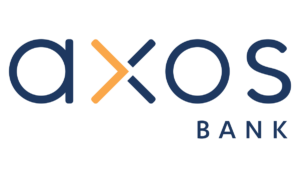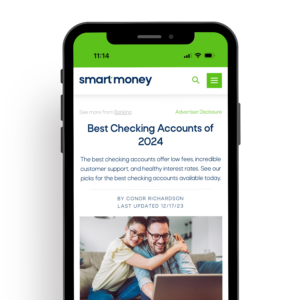Takeaways
- Payday loans offer access to capital for borrowers to pay for expenses and other needs.
- Payday loans are a form of short-term, expensive, and sometimes consumer debt.
- Payday loans can poorly impact your credit score but usually don’t enhance your score.
- Alternatives to payday loans include other lending options like short-term loans.
- Payday loans are small loans, usually only a few hundred dollars, repaid with your next paycheck.
What is a Payday Loan?
A payday loan is a type of unsecured consumer debt. Payday loans are short-term, expensive, and somewhat risky financing options to bridge borrowers to their next paycheck. Since payday loans are unsecured, they are backed only by your promise to repay (not by any collateral like your car or similar asset). These loans come in nominal amounts, with denominations ranging from $500 or below.
Payday loans are generally easy to get and only require basic information. Lenders require your name, identification, proof of income, and bank account information. Although highly accessible, these loans can be expensive with high annual percentage rates (APRs) and used by people with poor credit scores who would otherwise have difficulty accessing another type of credit line.
Personal finance experts – such as financial advisors – caution borrowers about payday loans because it can become easy to get bogged down in a cycle of debt. Because payday loans target borrowers with lower credit scores, these borrowers need to ensure they have the proper budgeting system in place to repay their short-term loans. They should also consider alternatives to payday loans with other lending sources.
How Does a Payday Loan Work
Payday lenders must get you cash quickly. Payday loans can be issued online or through traditional brick-and-mortar stores. After confirming your personal and bank account information, online payday loan providers will wire your funds, and in-person facilities will immediately issue you cash or a check.
In exchange for the borrowed funds, you will either give the lender access and permission to electronically withdraw funds from your checking account on a specified date or give them a post-dated check to do the same. Payday loans usually have repayment schedules of two weeks or less.
You can repay your loan in person or allow the payday lender to process the automatic withdrawal or check.

Member FDIC
Axos Bank® Rewards Checking
Smart Money Rating: 5/5
APY: 3.30% with No Minimum Balance
Bonus Offer: Up to $300 Bonus (Terms Apply)
How Expensive Are Payday Loans?
Payday loans can have a very high annual percentage rate. In the past, payday loan providers have issued loans with onerous terms. As a result, many states put a ceiling on how much payday loans can charge. To cloak how expensive these loans can be, payday loan providers refer to their interest rates and other expenses as “fees.”
For example, many states set a limit of $10 to $30 for every $100 borrowed [1]. To put this into perspective, a $15 fee on a two-week $100 payday loan is approximately 400% APR. You can compare this to credit cards, which have APYs in the mid-teens to the twenties.
5 Steps to Get a Payday Loan
Taking out a payday loan should be weighed against your other options. If you decide to take out a loan, here are the steps to secure the best payday loan possible:
Review How Much You Need
Before signing up for a payday loan, you should know who you are conducting business with. You can sense how other borrowers have felt about their experience with payday lenders by reviewing positive and negative online reviews.
Personal finance experts recommend taking out the lowest amount possible to reduce the fees you pay and increase the probability of quick repayment.
Research Payday Lenders
Before signing up for a payday loan, you should know who you are conducting business with. You can get a sense of how other borrowers have felt about their experience with payday lenders by reviewing positive and negative online reviews.
You can start the process by perusing online search engines like Google or Bing. After exhausting this option, you can use the Better Business Bureau or the Consumer Financial Protection Bureau’s Consumer Complain Database to search for your potential lenders
Get Smart With Your Money
Fresh weekly articles delivered straight to your inbox.
Enter your name and email for free tips and tricks.

Collect Your Documents
Once you have landed on your lender of choice, you need to collect the documents you will need to get your payday loan. These usually include:
- First and Last name
- Address
- Government identification (e.g., driver’s license)
- Bank account Information.
- Proof of Income or Paycheck
Some lenders might require more information, such as your social security number, before issuing your cash or check. However, ensuring you have all the requisite paperwork can speed up your time for approval.
Analyze Your Loan
Once you apply for your payday loan, you should analyze your loan documents and disclosures. This means reading through some of the fine print in the documents, such as your term length, annual percentage rate, potential fees, and recourse for non-payment.
After you are comfortable with your understanding of the document, you can proceed to take your loan. The next order of business will be to repay your line of credit.
Repay Your Loan
Hopefully, you have budgeted for repaying your payday loan. If you are still in a pickle about how to repay your loan in full, consider making more income through a side hustle for some quick cash.
Payday loans are notorious for bogging their borrowers down in a debt spiral. Avoid this trap by paying your payday loan in advance or on the term date. If you cannot make your payments, consult with your payday lender to work out a repayment plan. Alternatively, you can work with a financial advisor to help you navigate your debt.
Can A Payday Loan Affect Your Credit?
Payday loans can negatively impact your credit score. If you fail to make on-time payments, your payday lender can report this to credit bureaus, which can damage your credit. Your payday lender can even sell your delinquent credit to a collection agency.
Read More -> 7 Steps to Improve Your Credit Score
The tricky part about payday loans is that they aren’t a mechanism to improve your credit score. Payday lenders usually only worry about defaulters and don’t report on-time payments to credit bureaus.
5 Alternatives to a Payday Loan
Payday loans are considered to be a lender of last resort. To avoid high-interest rates and short-term payment terms, here are five other alternative financial options to consider:
- Gifts from family and friends: Ask a family member or friend to give you a short-term loan or gift you some cash. This could save you money and time. Additionally, you won’t need to worry about your credit score being affected. If you borrow funds, you can probably determine a reasonable repayment term.
- Apply for a credit card: Depending on your situation, you might need access to a line of credit. Consider applying for a credit card instead of taking out a payday loan. Credit cards have lower APYs and longer payment terms.
- Personal Loans from an Online Provider: Applying for a personal loan could also be another solution to accessing credit. You can research online providers or a credit union to find favorable terms. Personal loans also have lower APYs and better terms than payday loans.
- Credit card cash advance: Maybe you don’t need a line of credit. Instead, you might need quick access to cash. Most credit cards allow you to take out a credit card cash advance, which is a short-term loan where interest immediately starts accumulating. However, cash advances typically still offer more favorable terms than a payday loan.
- Tap Your Emergency Funds: If you are considering taking out a payday loan because you need access to cash and already have an emergency fund, consider tapping into your fund instead of taking the loan. Even if the cash isn’t technically for an emergency, it might save you time and money. Personal finance experts recommend refilling your emergency fund as soon as possible.
Smart Summary
Payday loans are a short-term and expensive form of financing. If you feel like this is the best option for your budgeting needs, you should carefully weigh other alternative sources of financing. Defaulting on a payday loan can negatively affect your credit score, so make sure that you pay your loan in full and with interest. You can hedge against defaulting on a payday loan with financial planning and avoid the need for short-term loans by building up an emergency fund. Working to give yourself a financial cushion is a smart money move.
(1) Consumer Financial Protection Bureau. What is a payday loan? Last Accessed March 27, 2024.










